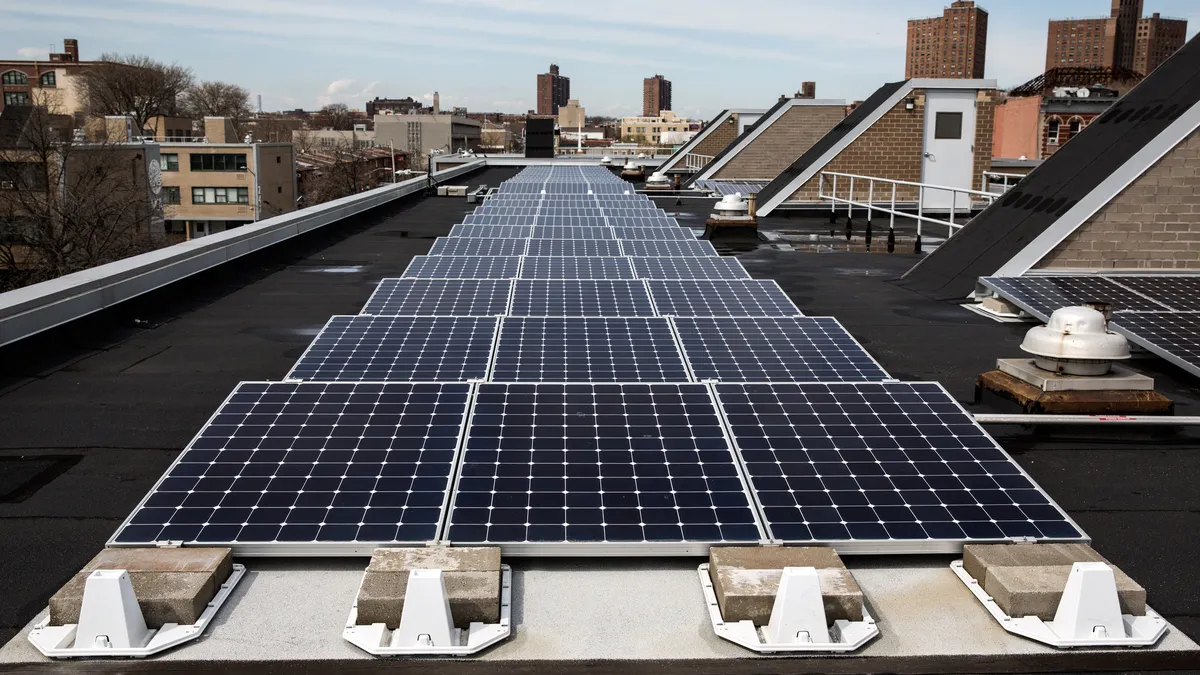Dive Brief:
- Ameren told the Illinois Commerce Commission (ICC) on Friday it is ending retail net metering for new residential solar customers, rejecting an Oct. 1 request from regulators to preserve the status quo as the process for determining if the utility can move to a different tariff works itself out.
- The focal point of the struggle is whether distributed solar generation has now reached 5% of Ameren's total system capacity, enabling the company, by law, to replace full retail net metering credits to owners of solar installations with a much lower distributed generation rebate. Ameren insists it has.
- Solar installers say Ameren's calculations are incorrect and that the sudden switch to lower payments for new rooftop solar owners will cripple the industry. In response to their plea for an emergency order, the ICC last week ruled Ameren could not lower payments to solar owners until the ICC staff audited the utility's calculations.
Dive Insight:
Ameren filed a letter with the ICC on Friday announcing it would go ahead with its plan to switch from full retail net metering to monthly distributed generation rebates equal to about half of the credit of full net metering. The changes will affect only for residential customers who apply for net metering after Oct. 2.
Other customers already billed under full retail net metering will not be affected, the company noted. The changes will go into effect on Oct. 23, the beginning of the company's November billing period, according to Ameren's letter.
"The Company has carefully considered this request for voluntary action with respect to the calculation and implementation of the 5% threshold," the company wrote regarding the ICC's request that it continue full retail net metering until the ICC staff can complete its audit of the utility's data and calculations.
"Ameren Illinois has determined that it cannot undertake what the Commission urges, as to do so would require Ameren Illinois to disregard is tariffs and so violate [the 2016 legislation creating net metering]," the company said it its letter.
Ameren also included the result of its latest calculations comparing the aggregate generation nameplate capacity of distributed generation on its system to its total 2019 peak demand, concluding that the distributed solar amounted to 5.31% of total load -- allowing the company to immediately replace full retail net metering for new customers with a distributed generation rebate. The company said it would immediately give all of its data and calculations to the commission to enable the staff to conclude its own investigation before Oct. 23.
The Solar Energy Industries Association, the Coalition for Community Solar Access and the Illinois Solar Energy Association responded this week with a request that the ICC take emergency action to "clarify" its emergency order of last week requiring "the Commission's audit to be complete before Ameren ceases to offer full retail net metering."
The solar advocates reasoned that Ameren's Oct. 2 letter announcing its plans to switch to distributed generation rebates means that "as of Oct. 3, Ameren no longer offers full retail net metering," defying the commission's request of the previous day.














